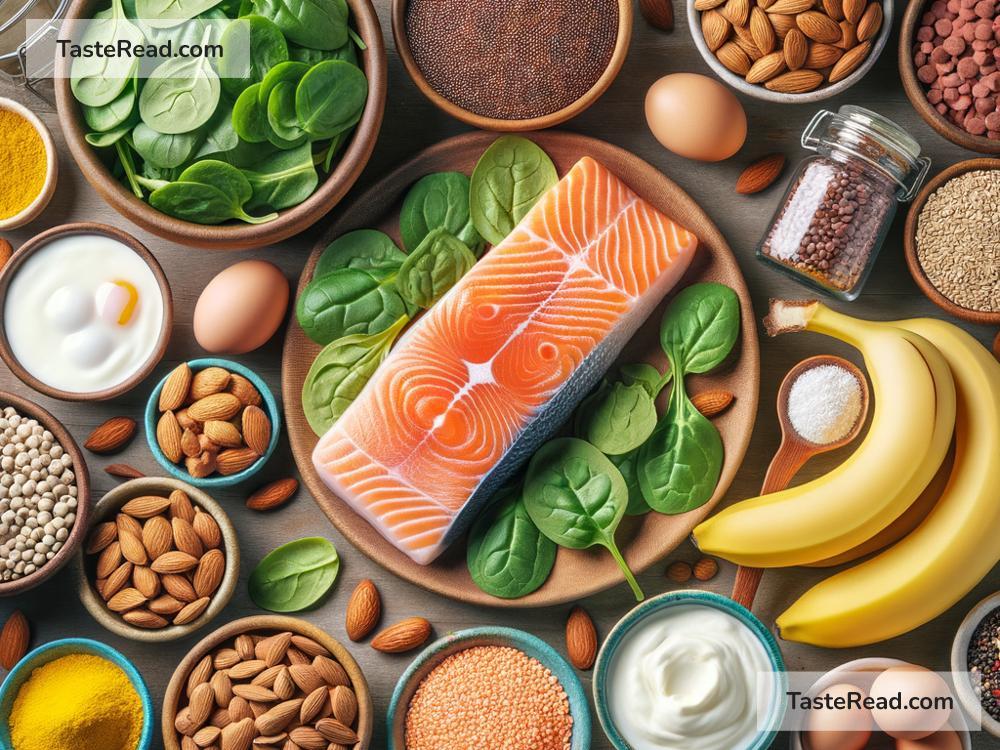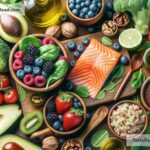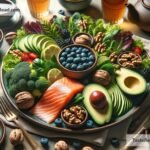Foods to Help Reduce Mineral Deficiencies
Minerals play a vital role in keeping our bodies strong and healthy. They help with everything from building bones to managing energy and keeping the heart working properly. However, mineral deficiencies are quite common and can lead to various health problems, like fatigue, weak muscles, or even brittle bones. The good news is that many everyday foods are rich in minerals and can help you get the nutrients your body needs. In this article, we’ll look at foods that can reduce mineral deficiencies and how to include them in your diet.
What are Minerals and Why are They Important?
Minerals are nutrients your body needs to function properly. Some essential minerals include:
- Calcium: Builds strong bones and teeth.
- Magnesium: Supports muscles, nerves, and energy production.
- Iron: Carries oxygen through the blood.
- Zinc: Helps your immune system and supports wound healing.
- Potassium: Maintains healthy blood pressure and fluid balance.
- Selenium: Acts as a powerful antioxidant, protecting cells from damage.
- Iodine: Helps your thyroid gland produce hormones.
If your body lacks these minerals, you may develop symptoms like weakness, tiredness, poor focus, or chronic illnesses. Eating the right foods can help prevent or correct these deficiencies.
Foods Rich in Calcium
Calcium is essential for strong bones, teeth, and overall muscle function. It’s especially important for children and older adults. If you lack calcium, your bones may become weak, leading to conditions like osteoporosis.
Here are some calcium-rich foods:
– Dairy products like milk, cheese, and yogurt: These are excellent sources of calcium and easy to include in meals.
– Leafy greens like spinach, kale, and collard greens: These are great for vegetarians and vegans.
– Fortified foods: Certain cereals, juices, and plant-based milks are enriched with calcium.
Foods Rich in Magnesium
Magnesium helps maintain muscle health, energy levels, and a healthy heartbeat. A deficiency may cause headaches, muscle cramps, or fatigue.
Add these magnesium-rich foods to your diet:
– Nuts and seeds: Almonds, cashews, sunflower seeds, and pumpkin seeds are great snacks packed with magnesium.
– Whole grains: Brown rice, quinoa, and oats are good sources.
– Dark chocolate: Yes, you read that right! Dark chocolate—with at least 70% cocoa—is a tasty way to boost your magnesium levels.
– Avocados: Slice up an avocado for a magnesium-rich addition to your meals.
Foods Rich in Iron
Iron is necessary for producing hemoglobin, which carries oxygen in your blood. Without enough iron, you may feel tired and weak, and children may struggle to focus or learn.
Iron can be found in:
– Red meat: Beef, lamb, and liver are excellent sources of easily absorbed iron.
– Beans and lentils: Vegans and vegetarians can benefit from these plant-based options.
– Leafy greens: Spinach and kale also contain iron.
– Eggs: A quick and easy way to add iron to your diet.
Pro tip: Pair iron-rich foods with vitamin C (like oranges or tomatoes) to help your body absorb iron better.
Foods Rich in Zinc
Zinc supports the immune system, helps with healing wounds, and contributes to healthy skin and hair. A deficiency may lead to frequent infections, poor wound healing, or even hair loss.
To increase zinc, eat:
– Seafood like oysters, crab, and shrimp: These are among the richest sources of zinc.
– Meat: Beef, chicken, and pork also provide zinc.
– Nuts: Cashews and peanuts are good plant-based sources.
– Legumes: Chickpeas, lentils, and beans contain zinc.
Foods Rich in Potassium
Potassium keeps your blood pressure healthy and helps with muscle contractions. If you lack potassium, you might experience muscle cramps or irregular heartbeats.
Potassium-rich foods include:
– Bananas: A convenient snack loaded with potassium.
– Sweet potatoes: A nutrient-packed vegetable.
– Tomatoes: Include fresh or cooked tomatoes in soups, salads, or sauces.
– Spinach: Another versatile food that’s high in potassium.
Foods Rich in Selenium
Selenium plays a key role in protecting your cells from damage. It’s also great for thyroid function and immune health.
You can find selenium in:
– Brazil nuts: Just a few nuts a day provide your daily selenium needs.
– Seafood: Tuna, salmon, and sardines contain selenium.
– Eggs: Another simple option to get more selenium in your diet.
– Whole grains: Brown rice and other whole grains include selenium.
Foods Rich in Iodine
Iodine is important for thyroid health, which regulates metabolism. A deficiency can lead to thyroid-related problems, such as fatigue or weight issues.
To increase iodine levels:
– Seafood: Fish, shrimp, and other sea creatures are great sources of iodine.
– Seaweed: This superfood is especially rich in iodine.
– Dairy products: Milk, yogurt, and cheese contain iodine.
– Iodized salt: Switching to iodized salt is a simple way to ensure you’re getting enough iodine.
Final Tips for Preventing Mineral Deficiencies
- Eat a Balanced Diet: Diversity is key. Mix fruits, vegetables, proteins, and grains every day to cover your mineral needs.
- Opt for Whole, Unprocessed Foods: Processed foods often lack important nutrients.
- Listen to Your Body: If you feel constantly tired or weak, it may be due to a deficiency. Consult a doctor to check your mineral levels.
- Consider Supplements (Only If Needed): If you can’t meet your mineral needs through food, talk to a healthcare professional about supplements.
By making smart food choices, you can easily reduce mineral deficiencies and keep your body in great health. Your plate is your most powerful tool for staying strong and energized—so load up on nutrient-rich foods today!


